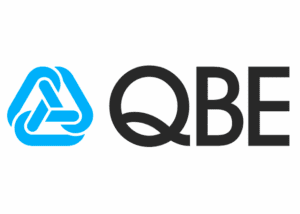Why clients are missing insurance payments — and risk policy cancellation

One Ontario brokerage has seen an increase in the number of clients missing insurance payments as well as cancellation notifications from insurers for non-payment.
For Mitch Insurance, the number of clients missing insurance payments has increased 104% since 2019. While there was a decrease in 2020 due to insurers offering payment relief at the beginning of the pandemic, there has been year-over-year increases since then.
The largest increase in missed payments was from 2021 to 2022, when the total number increased from 2,267 in 2021 to 3,847 in 2022, data from Mitch Insurance show.
Mitch’s retention manager Cassie Gilroy suggests the increase in missed payments can be attributed to a “perfect storm” over the last few years. During COVID, insurance companies took actions, such as reducing premiums, when they recognized that people weren’t driving as much or at all. But as those relief measures were lifted, insurance costs started rising as people started driving again (and getting into accidents).
“And in the economy, so many other expenses have also risen,” Gilroy says in an interview. “So, what we’re finding is that a lot of clients are finding it challenging to keep up with payments.
“We hear things like, ‘I can’t afford all of my bills and you were the last one to come out,’ or that they just need some extra time, a few extra days before they get their next paycheque so that they can pay everything. It really does seem to be a bit of the economy changing, as well as the insurance horizon starting to change a little bit, too.”
In a blog on the topic last month, Mitch warned that missing multiple payments will likely result in policy cancellation. The brokerage has also seen a “significant uptick” in cancellation notifications for non-payment.
Different approaches
Gilroy says insurers handle non-payment differently. Some will try a second attempt to access funds anywhere between three to seven days later before taking any action. Other companies will send a registered letter for cancellation once payment is missed. The letter will let clients know what is needed to maintain the policy — typically an NSF fee and the next month’s payment.
“And then if you have three of those registered letters, that’s when they will not offer to reinstate a policy at all,” Gilroy says. “So, you essentially get three chances each year to miss a payment before they’ll cancel you, as long as you make up the dollar figure that’s required.”
The good news is that there are no insurance implications for missing one payment if the client can make it up in time, Gilroy says. “It’s when it’s several, or if you can’t make the payment in time to stop the cancellation.”
Clients may also conflate insurance payment with other bills. “If you don’t make your Visa payment on time, next month you just have more interest,” she says as an example. “With insurance, that’s not the case. If you miss your payment, you actually have to take an action to continue your insurance.”
It’s also important to recognize that a missed payment does not equal cancellation for non-payment. “Missing a payment is not a big deal, getting cancelled for non-payment is going to drastically affect your rates, and it may make it difficult for you to secure new insurance.”
There are markets that will insure people with payment issues, but they’re done at a really high premium or require high finance fees to secure the policy, Gilroy says. “Let’s make sure we avoid the cancellation at all costs…”
Mitch is also seeing an increase in people voluntarily cancelling policies just because they can’t afford to own a vehicle plus gas and insurance costs.
And with rising costs for food, gas and other necessities, it’s likely the trend will continue, Gilroy says. “We haven’t pulled our 2024 numbers, but it wouldn’t surprise me if they continued to increase just based on what we’ve seen.”
Feature image by iStock.com/damircudic




